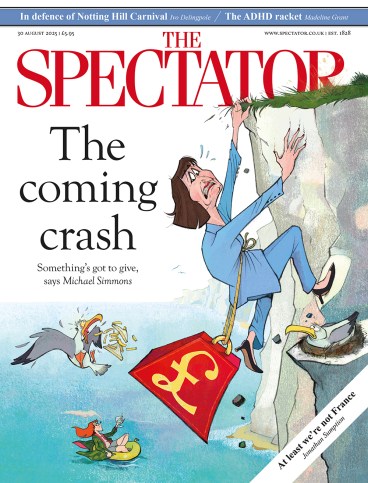
One of the pleasures of spending the summer in France is that I can turn aside from our national problems and concentrate on those of our neighbour. They are similar but gratifyingly worse. You have to know someone quite well before they will open up about their own politics to a semi-outsider. I used to feel the same way when our own politics were chaotic in the aftermath of the EU referendum and French friends would approach me with that characteristic note of smug condescension to ask what on earth was going on.
Emmanuel Macron is the ablest President of France since Charles de Gaulle. Yet he is hated across the political spectrum. The young are especially venomous. I once delivered a series of lectures in France on the global response to the Covid pandemic. I was struck by the number of people who came up afterwards, as the drinks were being handed round, to say that they would not be vaccinated. Why not? Because Macron wants us to. Any other reason? Aucune. Macron wiped out the Gaullists in the presidential election of 2017, but his personal unpopularity has dragged down his own party, Renaissance, which was supposed to replace them. The result has been the collapse of the political centre. The next presidential election seems likely to offer an unappetising choice between extreme left and extreme right.
One reason for Macron’s unpopularity is that he has made a courageous attempt to tackle some of France’s deep-seated problems, such as its impossibly complicated and inflexible labour laws, its excessive number of public holidays and a benefits system that threatens to bust the state. The assault on these collective national perks has hit the solid wall of existing entitlements. No one would think of designing a system like this today, but because it exists it creates vested interests which furiously resist any attempt at rationalisation or affordability. France has helped itself to the shortest working week in Europe. In the half-century after the war it progressively reduced its pension age at a time when expectation of life was rising by leaps and bounds. When Macron raised it to 64, still far too low, the public reaction was foul-mouthed abuse and riots in the street. Both the main opposition parties have pledged, to enthusiastic public applause, that they will reduce it back to the lowest level in the world. When Prime Minister Michel Barnier tried to address the resulting deficit in the social security budget, his government fell. His successor François Bayrou is about to try again. He points out that France has been living beyond its means for 50 years and that public debt is currently rising by €5,000 per second. Unanswerable really. But watch out for the fall of his government next. Perhaps France really is ungovernable. Still, it was ever thus and the country seems to get on very nicely with national bankruptcy.
The French courts have barred Marine Le Pen from standing for the presidency in 2027. It is part of her sentence for improperly diverting EU funds to her party, National Rally. No one doubts that she is guilty. Her defenders’ response is that everyone does it and she was only picked on because the authorities don’t like her politics. Perhaps it is true. I do not know and neither do they. But I do know that, whatever one thinks of Le Pen, banning a politician with the highest personal ratings in France is a seriously bad idea. It punishes not just the candidate herself but the third of the electorate who want to vote for her.
In Germany there is a move to do something very similar. Alternative für Deutschland (AfD) is currently at 25 per cent in the polls. Yet Germany’s domestic intelligence agency has opened the door to a legal ban by classifying it as a ‘confirmed right-wing extremist’ party. This is mainly because of its support for the mass deportation of immigrants, a policy with growing electoral appeal. The National Rally and AfD are both populist parties offering the classic populist message that the establishment is conspiring to frustrate the popular will. Can anyone think of a better way of validating that message than by banning them?
France may be living on borrowed time and borrowed money, but so what? Its people have an engaging wit, a winning indifference to unwelcome realities and an enviable lifestyle. On that note, I shall now head for the local street market, stock up on fresh fruit and veg and delicious cheese, and put the world to rights with friends over coffee and croissants. What will we say about the future of France? Merde! And the rest of Europe? Merde encore!








Comments